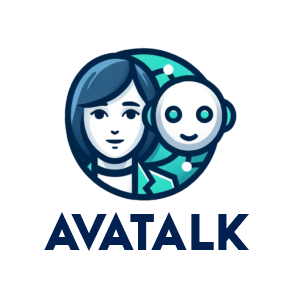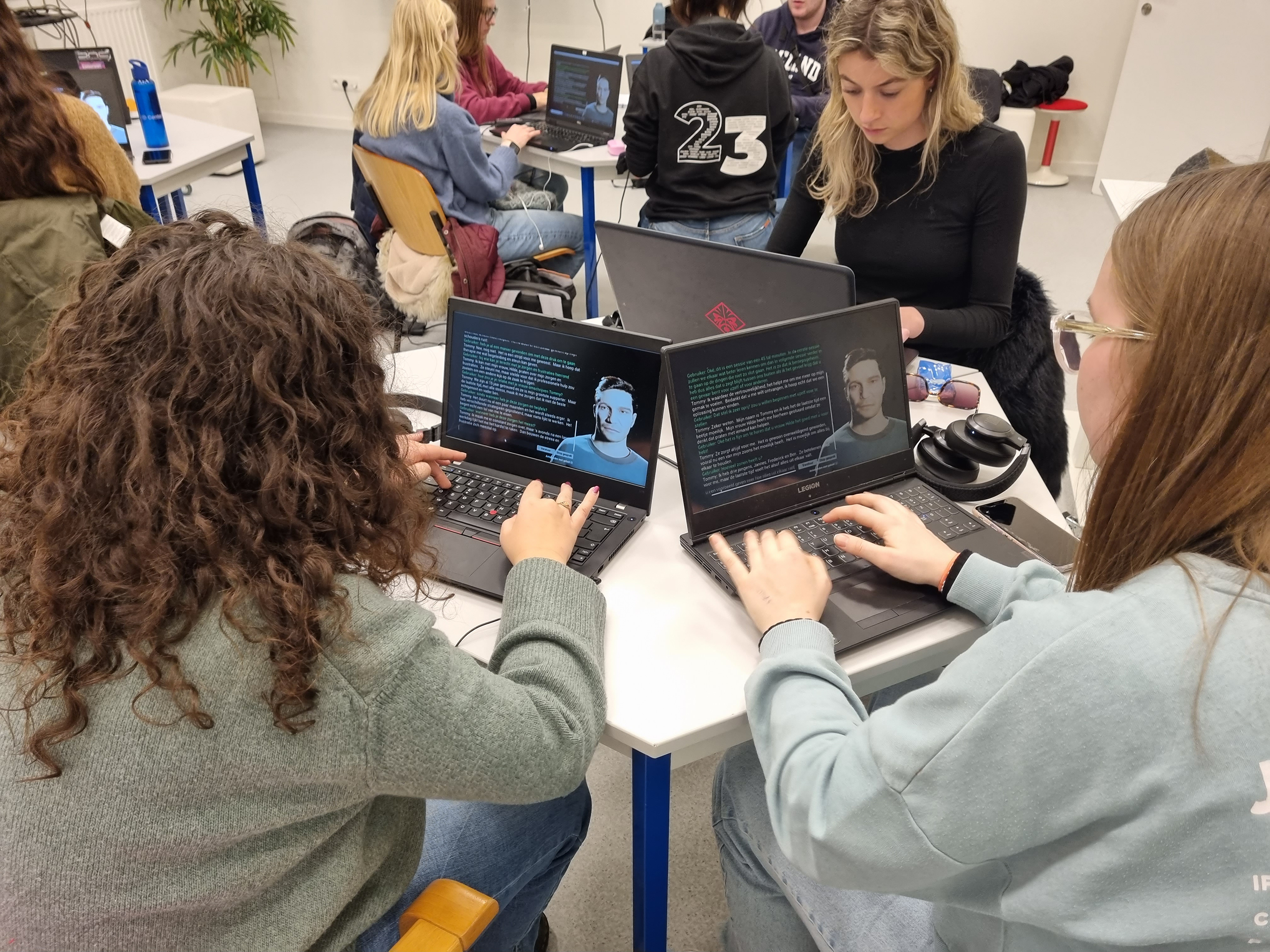Research conducted by VDAB shows a growing demand for soft skills amongst employers, however, these are hard to train since they are time consuming and costly. In that context, Howest research groups Digital Arts & Entertainment Research and Mensenmaat have launched the AvaTalk project. “We research conversation training programs in a safe and virtual environment”, explains Vicky Vermeulen of DAE Research. The researchers are reaching out to businesses active in HR, healthcare industry and services to participate.
Avatars with emotions
Whether you are a manager, nurse or service desk helper, interpersonal skills are crucial in many roles, but they are hard to train. Training programs are intensive and require personal coaching, which makes them costly (one-to-one contact). “That is why at Howest we are experimenting with an innovative prototype of a virtual training environment, to train conversation skills with digital humans. These realistic avatars are based on natural language learning (NLL)”, clarifies Vicky Vermeulen, research coordinator at DAE Research.
The goal of the two-year TETRA research project AvaTalk – the sequel to Space 2.0 – is to continue to digitise conventional conversation skills training, so that such training can become location and time independent as well as increasingly customised. “We aim to analyse ways for avatars to demonstrate more emotions and body language, as well as to determine, based on use cases, how to optimise the training”, continues Vermeulen.
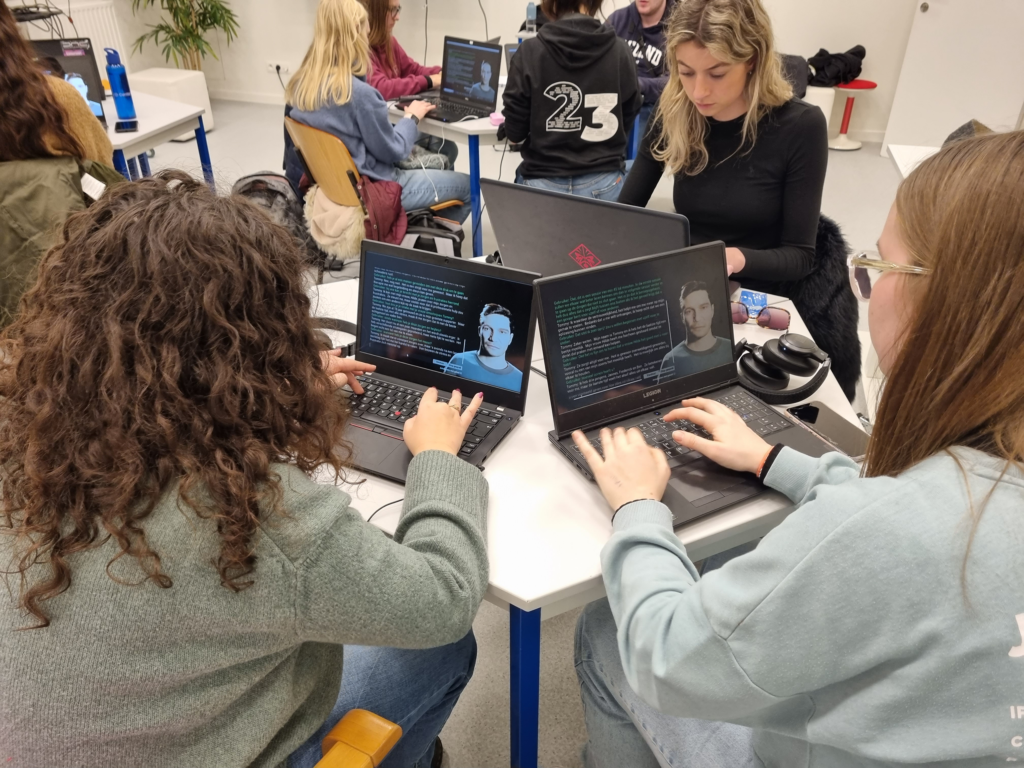
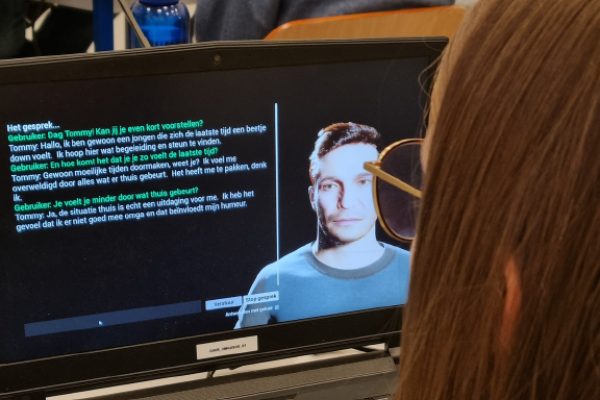
Soft skills
The demand for soft skills is growing. A 2021 job ad analysis by VDAB has proven that in 60 percent of the cases, candidates are expected to master over six soft skills. More than one in five job openings mention even more than ten soft skills.
“With the research project we want to really show the time has come to transform conventional conversation skills training programs using generative AI tools and immersive game technology. This offers important benefits to businesses, since reskilling and upskilling can become more feasible, flexible, and less costly. Conversations with credible digital humans open up potential to train employees faster and more efficiently, strengthening the overall skills level in the organisation.
Industries
Such conversation training programs are interesting for three industries in particular:
• In HR, you will be able to prepare important conversations in an effective way, whether it’s about bringing bad news, an interview or yearly performance review.
• In healthcare, care professionals can practise and improve intercultural conversation skills in a risk-free, virtual environment; for example, difficult conversations with patients, crisis calls such as 1712 or Zelfmoordlijn.
• In the services industry, front-office workers (service desk/helpdesk/…) can learn how to better deal with difficult customers and situations using customised feedback.
Curious? Discover the demo.
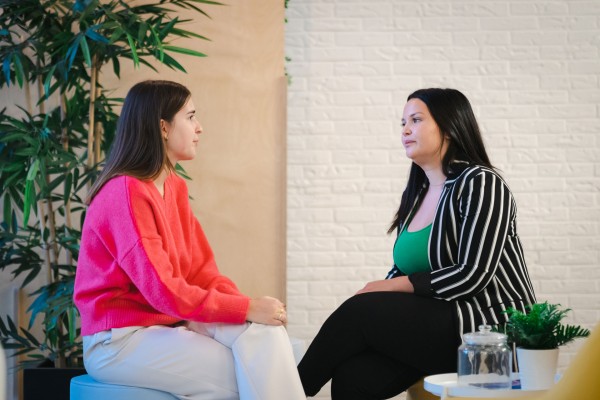
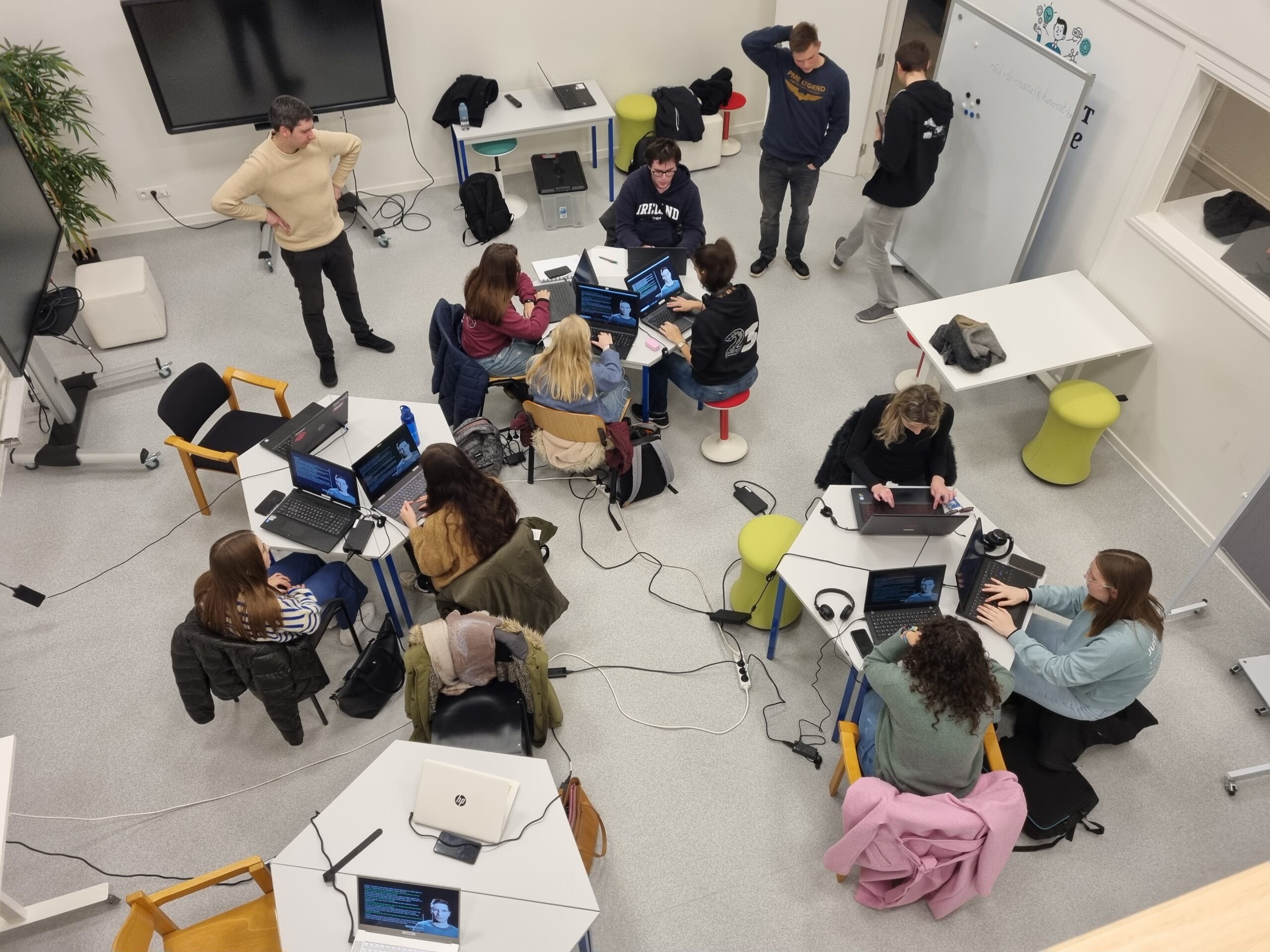
What’s in it for me?
Businesses that become a member of the AvaTalk management group will enjoy great advantages:
- You co-steer the project during a number of meetings and can propose use cases.
- You will have first access to the research results.
- You will be the first to explore the technology’s options and implement them in your organisation.
- You will be part of an interesting business network, consisting of businesses that have similar needs regarding this technology and upskilling.

